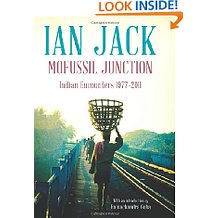On the one hand there is reportage and investigative journalism. On the other, travel writing and adventure story telling. And then there is Ian Jack who combines all these genres with fine felicity in his book Mofussil Junction: Indian Encounters 1977-2012. This collection of essays encapsulates his experiences and encounters in India.
The terms ‘mofussil’ and ‘junction’ in the title could easily mislead one to believe that the book is about a bygone era—one in which administrators in sola topis managed the affairs in the Indian hinterland and heaving steam engines drew up to deserted and dark railway platforms. Although references are made to such times the bulk of the writings are about an India spanning the period between 1977 and 2012. The articles have been divided into five sections making it easier for the reader to skip back and forth among them according to his preference.
September 2013, volume 37, No 9

